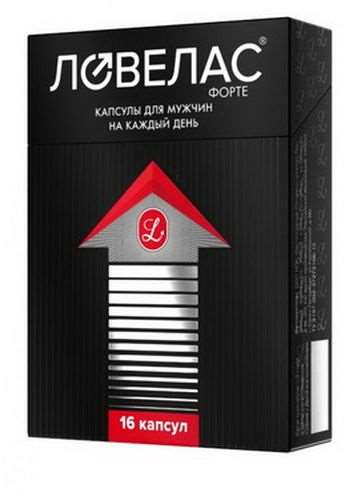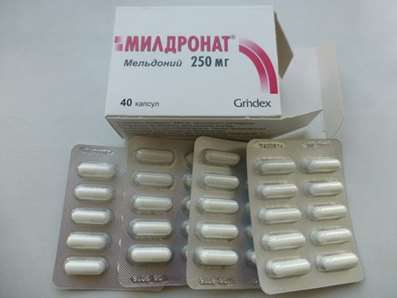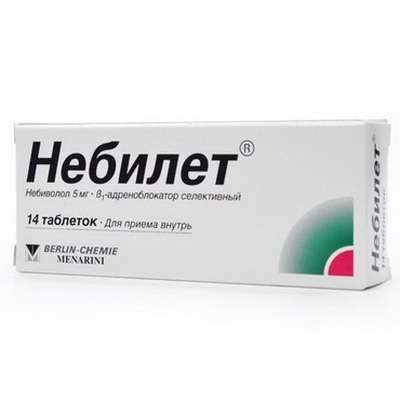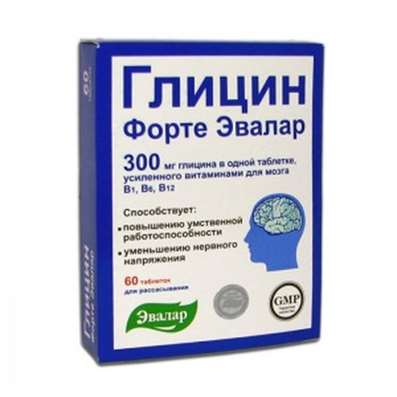Instruction for use: Biaven V.I.
I want this, give me price
Dosage form: Lyophilizate for the preparation of a solution for infusions
Active substance: Immunoglobulinum humanum normale
ATX
J06BA02 Normal human immunoglobulin for intravenous administration
Pharmacological group:
Immunoglobulins
The nosological classification (ICD-10)
B20-B24 Disease caused by human immunodeficiency virus [HIV]: Deployed stage of HIV infection; AIDS in children; HIV / AIDS infection; Infections with HIV; AIDS; Human Immunodeficiency Virus HIV-1; HIV-1 infection HIV infection; HIV
C90.0 Multiple myeloma: Multiple myeloma; Myeloma
C91.1 Chronic lymphocytic leukemia: Chronic lymphatic leukemia with tumor-like growths; B-cell CLL; B-cell chronic lymphocytic leukemia; Chronic granulocyte leukemia; CLL; Chronic leukemia; Chronic lymphoblastic leukemia; Chronic B-cell lymphocytic leukemia
D59.1 Other autoimmune hemolytic anemia: Autoimmune hemolytic anemia; Immune hemolytic anemia; Autoimmune hemolytic anemias
D66 Hereditary factor VIII deficiency: Congenital insufficiency of factor VIII; Hemophilia; Hemophilia A; Hemophilia classical; Deficiency of antihemophilic factor of blood VIII; Deficiency of the coagulation factor VIII; Inhibitory form of hemophilia A; Bleeding at hemophilia A; Hereditary hemophilia; Hereditary anomalies of antihemophilic factor VIII; Failure factor VIII; Insufficiency of coagulation factor VIII; Acquired hemophilia; Coagulopathies are hereditary
D69.3 Idiopathic Thrombocytopenic Purpura: Werlhof's Disease; Idiopathic autoimmune thrombocytopenia; Idiopathic thrombocytopenic purpura of adults; Idiopathic thrombocytopenic purpura in adults; Immune idiopathic thrombocytopenic purpura; Immune thrombocytopenia; Bleeding in patients with thrombocytopenic purpura; Evans Syndrome; Thrombocytopenic purpura; Thrombocytopenia of immune origin; Chronic idiopathic thrombocytopenic purpura; Essential thrombocytopenia; Autoimmune thrombocytopenic purpura in pregnancy; Posttransfusion purpura
D80 Immunodeficiencies with predominant antibody deficiency: Disease of cold antibodies; Agammaglobulinemia acquired; Agammaglobulinemia linked to the X chromosome; Agammaglobulinemia swiss; Secondary hypogammaglobulinemia; Hypogammaglobulinemia; Severe secondary hypogammaglobulinemia; Secondary antibody deficiency syndrome
D82.0 Wiskott-Aldrich Syndrome: Eczema-Thrombocytopenia-Immunodeficiency Syndrome
D83.9 General variable immunodeficiency, unspecified
D84.9 Unspecified Immunodeficiency: Pneumonia in immunodeficient states; Autoimmune disease; Autoimmune diseases; Severe immunodeficiency; immune deficiency; Immunodeficiency; immunodeficiency diseases; Immunodeficiency states due to surgery; Immunotherapy for cancer; Immunomodulation; Infections in patients with weakened immune systems; Correction of immune deficiency; Correction of immunodeficiencies; Correction of a weakened immune system; Correction of a weakened immunity in immunodeficient states; Violation of immunity; Violation of the immune status; Immune System Disorders; Primary immunodeficiency; Maintaining immunity; Lowering the body's defenses; Lowering the immunity; Lowering the immunity of colds and infectious diseases; The decrease of the immune status; Lowered resistance to infections; Lowered resistance to infections and colds; Lowered resistance; Immunosuppression; Predisposition to colds; acquired immune deficiencies; Radiation immunodeficiency; The development of immunodeficiency; Immune dysfunction syndrome; immunodeficiency syndrome; primary immunodeficiency syndrome; Reducing the body's defenses; Immunosuppression; Reduced immune defense; Reducing local immunity; Reducing the total body resistance; The decrease in cell-mediated immunity; Reduced resistance to infections in children; Reducing the body's resistance; Reduced resistance; reduced immunity; Status immunodeficiency; Stimulation of the processes of nonspecific immunity; Heavy selective secondary immunodeficiency; immunity Oppression; Primary immunodeficiency
G35 Multiple Sclerosis: Disseminated Sclerosis; Multiple sclerosis; Recurrent multiple sclerosis; Secondary-progressive multiple sclerosis; Exacerbation of multiple sclerosis; Mixed forms of multiple sclerosis
G40 Epilepsy: Atypical convulsive seizures; Atonic seizures; Great seizures; Large convulsive seizures; Generalized Absences; Jackson epilepsy; Diffuse large seizure; Diencephalic epilepsy; Cortical and non-convulsive forms of epilepsy; Primary-generalized seizures; Primary-generalized tonic-clonic seizure; Pycnoleptic absence; Repeated epileptic seizures; Attack generalized; Seizure fit; Refractory epilepsy in children; Complicated convulsive seizures; Mixed seizures; Mixed forms of epilepsy; Convulsive condition; Convulsive seizures; Convulsions; Convulsive forms of epilepsy; Epilepsy grand mal; Epileptic seizures; Great seizures in children
G70 Myasthenia gravis and other disorders of the neuromuscular synapse: Myasthenic syndrome; Myasthenic syndromes; Myasthenia gravis; Myasthenic syndrome; Severe myasthenia gravis (Myasthenia gravis)
M05.2 Rheumatoid vasculitis: Vasculitis in musculoskeletal diseases; Systemic vasculitis; Systemic vasculitis
M06.1 Still's disease, developed in adults: Still's disease; Still's syndrome
M30.3 Mucous-cutaneous lymphonodular syndrome [Kawasaki]: Pediatric polyarteritis; Kawasaki disease; Kawasaki Syndrome; Mucous-cutaneous lymphonodulary syndrome; Dermal-mucous lymphadenopathy; Lymphonodular pharyngitis
M32 Systemic lupus erythematosus: Lupus erythematosus red disseminated; Disseminated lupus erythematosus; Chronic lupus erythematosus
T86.0 Bone marrow transplant rejection: Rejection during bone marrow transplantation
Composition and release form
Powder lyophilized for solution for infusion 1 bottle
Normal human virusinactivated immunoglobulin 500 mg, 1, 2.5 and 5 g
In bottles of 10, 20, 50 and 100 ml, complete with a solvent in the vial; In the box 1 set.
1 ml of the prepared infusion solution contains 50 mg of the active substance.
Pharmachologic effect
Replenishes the deficiency of opsonizing and neutralizing antibodies against bacteria, viruses, toxins and other infectious agents. It improves suppressor activity, blocks Fc receptors (to the constant part of Ig) on macrophages, regulates idiotypic immune system network and T-lymphocyte activity, which leads to a decrease in autoantibodies and a decrease in the level of complement.
Pharmacokinetics
With IV infusion, bioavailability is 100%; T1 / 2 about 24 days.
Indication of the Biaven V.I.
Prevention and treatment (as replacement therapy) of infections with primary immunodeficiencies: idiopathic agammaglobulinemia and hypogammaglobulinemia, variable and combined immunodeficiencies, Wiskott-Aldrich syndrome; With secondary immunodeficiencies: HIV in pediatrics, chronic lymphoproliferative diseases, multiple myeloma, bone marrow transplantation, infections in newborns and premature babies with low body weight. Immunomodulating or immunosuppressive syndromes in autoimmune diseases. Idiopathic autoimmune thrombocytopenia and secondary thrombocytopenia in the background of systemic vasculitis. Autoimmune neutropenia, an inhibitory form of hemophilia. Demyelinating diseases: Guillain-Barre syndrome, polyneuropathy, myasthenia gravis, refractory epilepsy in children, antiphospholipid syndrome accompanied by spontaneous miscarriages, lupus erythematosus, Still's disease, vasculitis, Kawasaki syndrome.
Contraindications
Intolerance to homologous immunoglobulins, especially in the presence of antibodies to IgA.
Application in pregnancy and breastfeeding
It is permissible only on strict indications: long-term experience of clinical use shows the absence of any negative effect on the course of pregnancy, fetus or newborn.
Side effects
Chills, headache, fever, arthralgia, back pain, decreased blood pressure, vomiting, nausea, allergic reactions (rarely); Anaphylactic shock (extremely rare).
Interaction
Within 1.5-3 months reduces the effect of attenuated vaccines (against measles, measles rubella, mumps, chicken pox).
Dosing and Administration
IV, drip, with an initial rate of 10-20 drops / min for 20-30 minutes, then it is possible to increase to 40 drops / min, depending on the tolerability.
Substitution therapy: 100-400 mg / kg (2-8 ml) once a month; If necessary, 800 mg / kg (16 ml).
Immunomodulating therapy: a course dose of 400 mg / kg (8 ml) for 5 days or 1000 mg / kg (20 ml) for 2 days. If necessary, it is possible to repeat courses of treatment up to 6 times.
Organ transplantation: before and after transplant, at a dose of 500 mg / kg (10 ml) per week, then - per month.
Precautionary measures
In the case of adverse events, the rate of administration should be reduced or the infusion should be discontinued before they disappear.
Special instructions
Infusion should be performed only through an individual system for intravenous administration. It is possible to dilute sodium chloride in a physiological solution or 5% glucose solution. Do not mix and co-administer with other medicines.
Storage conditions of the drug Biaven V.I.
In the dark place at a temperature of no higher than 25 ° C. Do not freeze
Keep out of the reach of children.
Shelf life of the drug Biaven V.I.
3 years.
Do not use after the expiry date printed on the package.

 Cart
Cart





